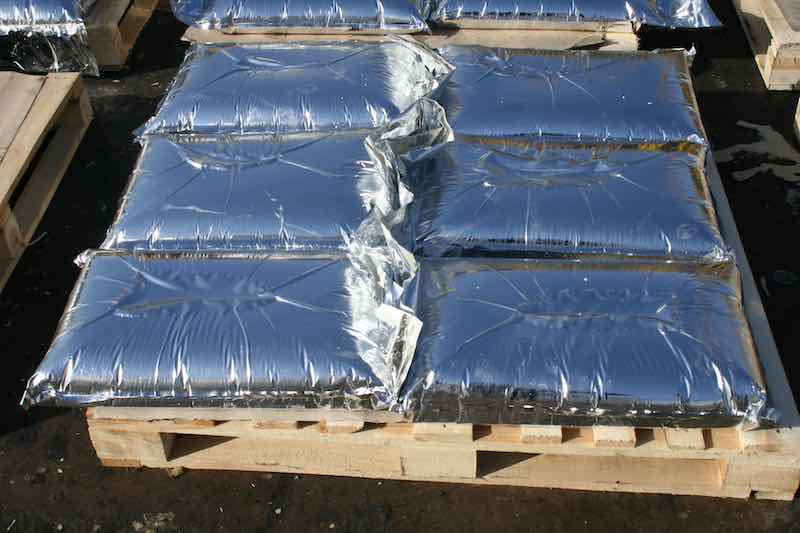
What is bitumen 95/25?
Bitumen 95/25 is a type of oxidized bitumen and softening point is 95C and penetration is 25 0.mm. and categorized in flexible blown grade comapre bitumen 115/15 and mostly using in tyre industry and builing materials. The bitumen 95/25 is a specialized form process of dehydrogenation of asphaltenes. This process leads to the creation of long chains of asphaltene molecules through polymerization and condensation reactions.
Chemistry of Bitumen 95/25
The transformation of bitumen into the oxidized bitumen form involves intricate chemical processes. Partial dehydrogenation of asphaltenes is a key step, leading to the polymerization and condensation of molecules. This results in the formation of a harder bitumen, known as bitumen 95/25.
Application and usage of 95/25
The applications of bitumen 95/25 span across various industries, specially in road construction, pavement, and civil works, this form of bitumen finds itself integral to a multitude of applications.
Special usage of bitumen 95/25 in coating
The products play crucial roles in diverse industries. From coating application in corrosion protection in paints to adhesives in electrical laminates, and even serving as a base for synthetic turf, the applications are extensive. This section explores the varied uses of oxidized bitumen in specific industrial contexts.
Packing of bitumen
The packing of bitumen 95/25 undergoes a meticulous process, providing a range of options including kraft bags, meltable plastic bags, drums, and bulk supply. Notably, our commitment to precision is underscored by a maximum variation of 1% during the filling process conducted by our advanced machinery. This ensures consistent and accurate packaging across different formats, maintaining the quality and integrity of bitumen 95/25 throughout various packaging options.
Specification and data sheet of bitumen 95/25
Understanding the specifications is crucial when dealing with bitumen 95/25. The grading system, indicating softening point and penetration ranges, provides essential information. This section elaborates on the specifications, emphasizing compliance with ASTM standards.
Bitumen 95/25 | Specification | Test method ASTM/EN13304 |
Specific gravity @ 25/25 cg | 1.01/1.06 | D-70 |
Penetration @ 25 c | 20/30 | D-5 |
Softening point c | 90/100 | D-36 |
Loss on heating(wt) % | 0.2 Max | D-6 |
Flash point c | 250 min | D-92 |
Solubility is CS2(wt) % | 99.5 Max | D-4 |
Spot test | negative | A.A.S.H.O.T102 |
Bitumen 95/25 Quality Assurance
Quality assurance is a top priority, with batch test reports serving as evidence of compliance. Meeting ASTM/EN 13304:2009 standards ensures that the product maintains the required quality consistently.
Applications in Construction
Oxidized bitumen 95/25 finds extensive use in construction-related applications, including roofing, pipe coating, pavement, and hydraulic applications. Its role in paint manufacturing adds another dimension to its versatility in the construction sector.
Environmental Impact of Oxidized Bitumen
Considering the environmental impact of oxidized bitumen is essential in today’s context. This section explores sustainability considerations and discusses potential alternatives and eco-friendly options in bitumen-related industries.
Guarantee and Warranty by ATDM
To instill confidence in the quality of blown bitumen, manufacturers like ATDM provide guarantees and warranties. International inspections, quality checks during loading, and batch test reports are part of the comprehensive quality control measures. Compliance with ASTM/EN 13304:2009 standards further ensures the reliability of the product.
msds of Bitumen oxidized 95/25
The specific gravity of Bitumen 95/25 is in the range of 1.01 to 1.06 at 25/25 °C, determined by the D-70 test method.
The penetration values for Bitumen 95/25 range from 20 to 30, measured at 25 °C using the D-5 test method.
The softening point is between 90 to 100 °C, as determined by the D-36 test method.